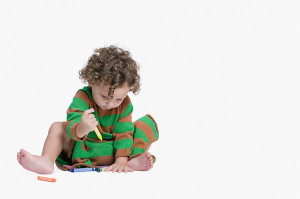 August 2014 (Links updated, June 2016, May 2023)
August 2014 (Links updated, June 2016, May 2023)
This Parent Center Hub page focuses on improving early learning through evidence-based education practices. Items marked with ** are designed to be parent-friendly.
- Openers and ideas
- Helping kids learn
- How to measure outcomes
- Moving on to kindergarten
- Resources in other languages
- Don’t forget to search the Hub!!
Openers and Ideas
Early learning, starting with the feds.
Visit none other than the U.S. Department of Education, for starters. This landing page will connect you with such a multitude of information and resources on early learning, you’ll be amazed.
Building an early childhood professional development system.
This Issue Brief provides strategies for building a statewide system of professional development for all program staff and personnel who work with young children. From the NGA Center for Best Practices, a service of the National Governors Association.
Helping Kids Learn
Infants, toddlers, preschoolers: Have fun with language.**
Visit CELL, the Center for Early Literacy Learning, to find incredible materials on how to promote the language skills of our little ones in everyday activities and routines. Share these materials with the families you serve, especially those who are concerned about their child’s language development. Many practice guides for parents are also available in Spanish.
User-friendly summaries of practice-based research in early literacy. **
CELLtools is an extensive library of tools and resources that aid in supporting families with early literacy training.
National Center for Children in Poverty.
NCCP has an amazing array of publications and tools for improving children’s development. A special focus area of NCCP is early childhood. Explore the site for the topics that interest you (e.g., preventing obesity, improving social emotional well-being, early childhood state profiles, children’s mental health).
How to Measure Outcomes
Measuring child and family outcomes | The Early Childhood Technical Assistance Center.
The outcomes team of the ECTA Center helps states implement high-quality child and family outcomes measurement for early intervention and early childhood special education programs. What a wealth of information for the nation.
For families | Understanding and using data.**
Visit the Center for Early Childhood Data Systems (DaSy) for a great list of family-friendly materials on understanding and sharing early childhood outcome data.
State of the States | Part C and Part B 619 data systems.
The Center for Early Childhood Data Systems (DaSy) has identified 10 features of Part C and Part 619 state data systems (e.g., child-level data). Find out how your state is doing in building an effective early childhood data system.
Moving on to Kindergarten
Paving the way to kindergarten for young children with disabilities. **
Entering kindergarten can a joyful but also an anxious time, particularly for parents of children with disabilities. These best practices can help make for a smoother transition: using a collaborative team approach to involve families, setting transition goals, and focusing on the needs and strengths of individual children. In the “For Parents” section, you’ll find a great booklet that parents can fill out about their child and share with the teacher.
Transitioning to kindergarten: A toolkit for early childhood educators.
This toolkit includes tools and materials that will help you implement strategies to facilitate this process and enhance children’s transition to kindergarten. Whether you are a school administrator, pre-K teacher, child care provider or kindergarten teacher, you will find practical and easy-to-use tools, materials to pass along to parents, and resources and guides to steer you through the process. You can use everything in this toolkit, or just pick a few pieces that will be most helpful for your particular situation.
Resources in Other Languages
Multiple languages | Preparing your child with disabilities for kindergarten.Fact sheet from Parent to Parent of Georgia, available in Spanish, Arabic, Chinese, Vietnamese, Korean, and Japanese.
Spanish | Infants, toddlers, preschoolers: Have fun with language. **
Visit CELL, the Center for Early Literacy Learning, to find incredible materials in Spanish on how to promote the language skills of our little ones in everyday activities and routines.

